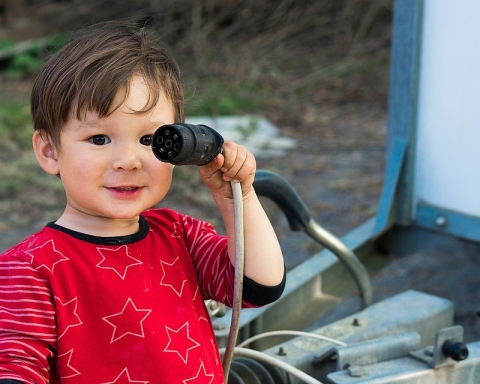Parenting a child with intense emotions can be stressful, especially when parents are not equipped with enough relevant information about the issue.
Many children who suffer from anxiety disorders express intense emotions by throwing tantrums and crying hysterically at the slightest provocation. These behaviors can negatively impact the growth and development of a child; they can cause adverse effects if not handled properly and in time. This study shows that anxiety disorders can, however, be controlled and minimized considerably.
Also, read on this website
- Proximal Parenting Tends To Produce Children Who Are Emotionally Secure
- Distress Tantrums or Nero Tantrums: How to tell them apart and raise Emotionally Stable Toddlers
Tips for Parenting a Child with Intense Emotions
Intense emotions affect both the child and the parents. It is important for parents to tackle the issue since they play an essential role in providing support and guidance for their child.
- Emotional care and support. Parents should be available for their child as much as possible so that the child knows he or she is not alone. Hug the child until he or she relaxes to help release stress. Showing love will help calm down an emotionally unstable child.
- Provide options and control. While getting the child dressed, for instance, let the child decide what to wear or give the child options, such as, “Choose between the sandals or the Converse sneakers,” so that the child picks what he or she is comfortable with. This will let the child know that his or her needs are being met.
- The art of forgiveness and apology. If the parents hurt the child’s feelings, they should apologize so that the child learns to do the same. When the child apologizes, forgive them so that the child learns how to forgive others.
- Lower your anxiety levels. Parents cannot possibly help a child manage anxiety if they are anxious themselves. Parents should steady their emotions so that they are able to understand their child’s needs and deal with the child effectively. Parents need to be able to control themselves and how they react.
- Step-by-step guide. During an episode, use strict but friendly disciplinary measures. Outline the child’s shortcomings and suggest solutions but be clear that failure to comply will result in discipline. The child will start to associate tantrums with disciplinary measures and eventually minimize them.
- Get more information. The best thing to do is to learn as much information as possible. Child experts and the internet offer practical and useful information about parenting kids with intense emotions.
According to an expert study, parents are able to control their child’s emotional instability and manage his or her anxiety disorder to a larger extent if it is discovered and dealt with at an early stage. Parenting a child with intense emotions is not much different from parenting other children. With the sea of information available, raising such a child is certainly a challenge that can be overcome.
References
Fabes, Richard A., Stacie A. Leonard, Kristina Kupanoff, and Carol Lynn Martin. “Parental Coping with Children’s Negative Emotions: Relations with Children’s Emotional and Social Responding.” Child Development 72, no. 3 (2001): 907–920. Retrieved from https://onlinelibrary.wiley.com
Hiller, Rachel M., Adela Apetroaia, Kiri Clarke, et al. “The Effect of Targeting Tolerance of Children’s Negative Emotions among Anxious Parents of Children with Anxiety Disorders: A Pilot Randomised Controlled Trial.” Journal of Anxiety Disorders 42 (2016): 52–59. doi:10.1016/j.janxdis.2016.05.009. Retrieved from https://www.sciencedirect.com













